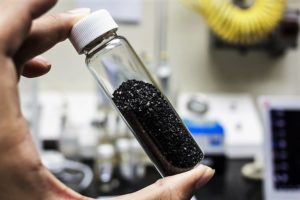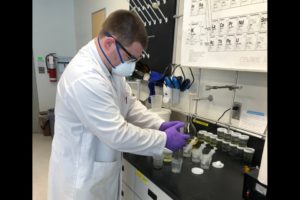“People of the Portal”: Working with Trent University, indigenous startup helps solve environmental challenge
We have had several occasions recently to celebrate the successes of a number of Cleantech Commons Cleantech Innovation Portal client companies.

This week: please join me in celebrating a Cleantech Innovation Portal client AND a future Cleantech Commons tenant, Carbonix.
“Energy Examined” has profiled Carbonix’s exciting journey solving the challenge of oil sands tailings.
Check out that full story here!
Under the heading “Indigenous cleantech company’s journey toward solving the challenge of oil sands tailings”, Energy Examined writes that Carbonix is “developing cleantech that turns an oil and gas byproduct into a material used to treat industrial waste, including oil sands tailings.”
In March Carbonix’s technology was selected as a finalist in the Clean Resource Innovation Network (CRIN)’s Reducing Environmental Footprint Technology Competition.
To learn more about this, check out our Blog.
The successes that Carbonix has enjoyed are the result of a significant and ongoing collaborative research project with Trent University’s chemistry department in Peterborough, Ontario.

Through this industry-academic collaboration, different materials and solutions have been tested over time. This has led to the development of an innovative process that uses nano-engineering to convert large amounts of petroleum coke and other waste products into activated carbon.
The carbon’s highly porous surface can be tailored to absorb targeted industrial toxins and contaminants. At the same time, valuable metals or minerals can be washed out and recovered for added value.
“The activated carbon works like a molecular-level sponge to treat different environmental materials,” Carbonix CEO, Paul Pede, tells us.

